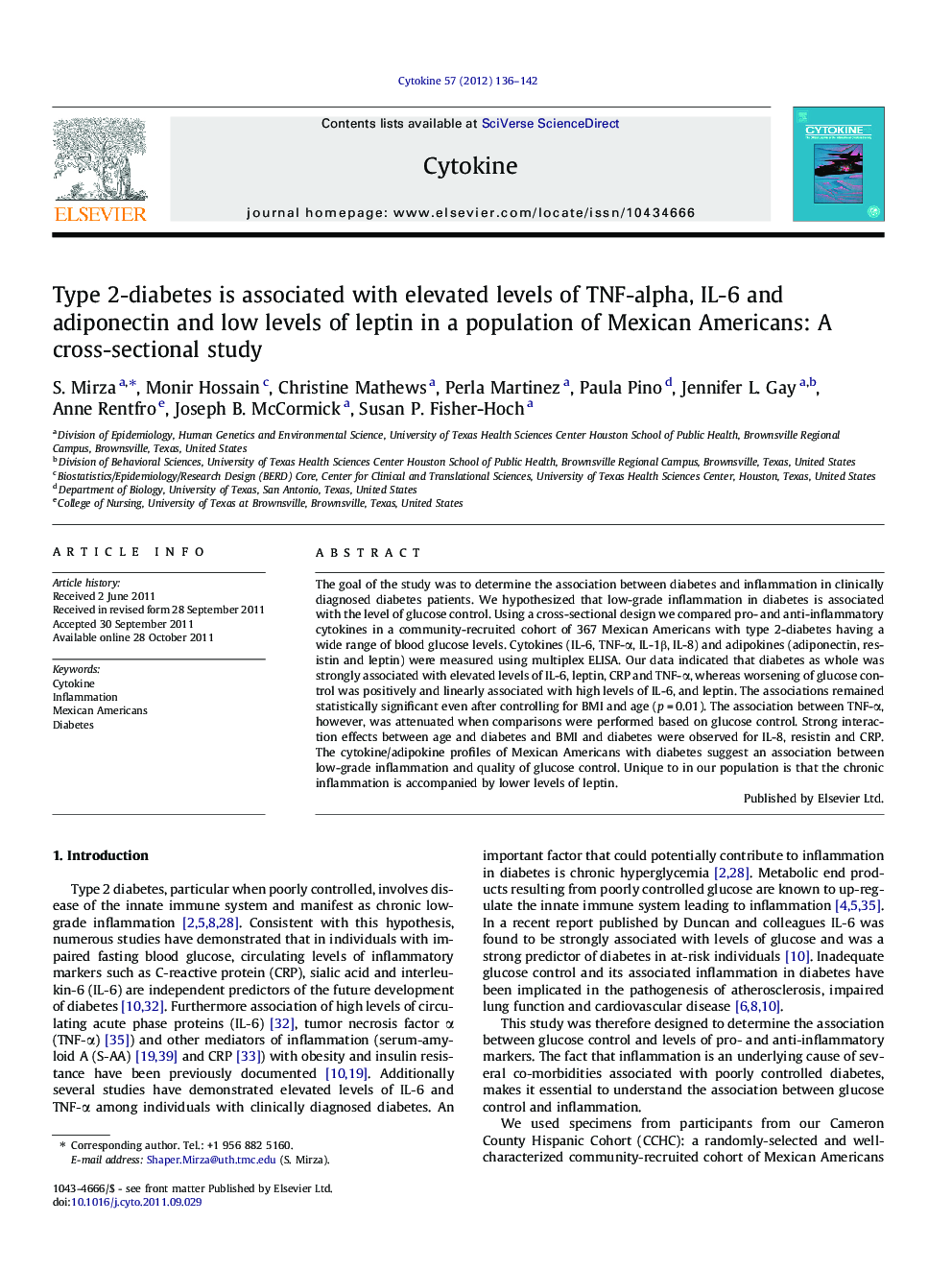| Article ID | Journal | Published Year | Pages | File Type |
|---|---|---|---|---|
| 5898260 | Cytokine | 2012 | 7 Pages |
The goal of the study was to determine the association between diabetes and inflammation in clinically diagnosed diabetes patients. We hypothesized that low-grade inflammation in diabetes is associated with the level of glucose control. Using a cross-sectional design we compared pro- and anti-inflammatory cytokines in a community-recruited cohort of 367 Mexican Americans with type 2-diabetes having a wide range of blood glucose levels. Cytokines (IL-6, TNF-α, IL-1β, IL-8) and adipokines (adiponectin, resistin and leptin) were measured using multiplex ELISA. Our data indicated that diabetes as whole was strongly associated with elevated levels of IL-6, leptin, CRP and TNF-α, whereas worsening of glucose control was positively and linearly associated with high levels of IL-6, and leptin. The associations remained statistically significant even after controlling for BMI and age (p = 0.01). The association between TNF-α, however, was attenuated when comparisons were performed based on glucose control. Strong interaction effects between age and diabetes and BMI and diabetes were observed for IL-8, resistin and CRP. The cytokine/adipokine profiles of Mexican Americans with diabetes suggest an association between low-grade inflammation and quality of glucose control. Unique to in our population is that the chronic inflammation is accompanied by lower levels of leptin.
⺠High rates of obesity and low rates of cardiovascular disease (CVD) are observed in Mexican Americans. ⺠Levels of cytokines/adipokines were measured to understand biological basis of this disparity. ⺠Adiponectin (anti-inflammatory), IL-6 and TNF-alpha (pro-inflammatory) were elevated. ⺠Simultaneous upregulation of both pro- and anti-inflammatory cytokines, explain low rates of CVD.
